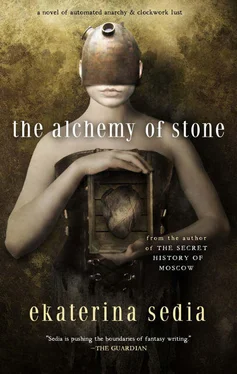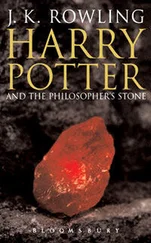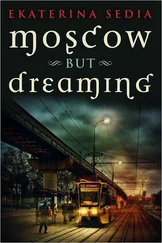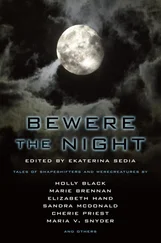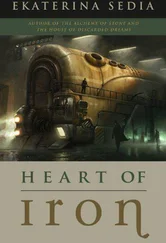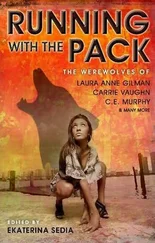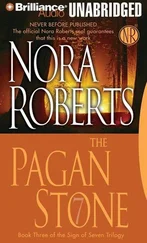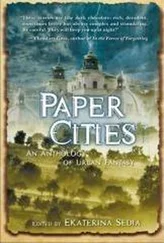“I don’t remember,” Mattie lied. “I don’t remember much of that day—only that Niobe was there to help me.”
“And she’s not a mechanic.”
“Not that I know of,” Mattie answered cautiously. “Does one need to be a mechanic to take my face off?”
“It certainly helps.” Loharri watched her still, with a calm curiosity in his eyes that Mattie found unsettling. “If there was a mechanic who had stopped by, you would tell me, wouldn’t you?”
“Of course.” She made her voice as steady as she could manage. “Why wouldn’t I?”
“This is exactly what I’m trying to figure out,” Loharri said, smiling.
We feel a strange sense of kinship to the people who are burning the city down—not to their actions, but they have come from the stone, like us—the ground opened and disgorged them, a whole throng, torches and gaunt faces, as if they were born from the rock and appeared on the surface by magic, already sullen and dissatisfied with the world as it was.
And then we see the deformed spiderlike men crawling out, their long weak arms grabbing onto the rocks as they struggle to exit narrow passages where diamonds and emeralds and rubies hide, where only small bodies and long fingers can reach; they haul themselves out, with little help from their deformed spindly legs, weak from constant crouching. Their red-rimmed eyes blink even though the sun is setting and the shadows are long and velvet-soft. We wonder if these children of stone are to succeed us and if they are the reason for our decline, if the stone has planned it like this, all these centuries ago—that we are to return where we came from and others would come in our stead.
But they look weak, and we know that they have been shaped by human hands—the hands that stuffed them into cages where their bodies could not grow; we know that they find it difficult to breathe and can easily suffocate in their sleep—every night is a gamble for them. Like it is for us, we suppose.
We follow them as they crawl, and more emerge from the earth, so pale, so blind, so helpless on the surface. They come in the wake of the first riots, and they watch the orange light tinting the horizon, streaked with black smoke. It’s not like they remember it from last night, but last night was different, too—they did not enter the city but instead crawled to their hovels outside the city wall, to sleep and dream of death. Tonight, they pass through the gates, and we follow them, curious now.
They notice us—we do not know how, but they do, and their red eyes linger as we cling to the city wall, to the buildings.
“Don’t be afraid,” they croak and coo and call us in strangled voices. In their hands they have gems—blue and green and red, the stone that gave birth to them still clinging to their rough uneven edges. They offer the gemstones to us, and we cannot resist—we have been hungry for so long. We descend to the ground, to their level, and we eat the stones out of their hands. Their slender fingers touch our faces in wonder and apprehension, they slide off the abrupt precipices of our cheekbones and noses. The stones taste of cool subterranean depths, and we suddenly miss home.
“Come with us,” they call and coo. “Come with us, help us like you haven’t helped us before.”
“But what can we do?” we say, the shards of emeralds and rubies grating on our worn teeth. “We can only watch.”
“Come with us,” they say and beckon. “There’s stone down in these tunnels, and great twisting passages; there are crystals growing from the low roofs, and there’s fluorescent moss covering the walls.”
“We can’t,” we say, and we move away, the crumbs of gemstones dropping from our lips.
We climb the walls again, and we follow them around the city on their slow, exploratory crawl. They pay us no attention, pretending that they have forgotten about us. But we know better. They are afraid of us, afraid that we will protect our city, and they want to lure us to the tunnels, where we will be out of the way, in the soft cradling embrace of our home. But we cannot go. The city is our responsibility—even though we can only watch.
They crawl toward the fires, drawn to them like all creatures living in the dark. There are men with torches everywhere, and they are not burning but fleeing now—we hear the distant clanging of the buggies and the shouts of their passengers, and musket shots ringing through the streets.
The windows are shuttered, and even the shopkeepers do not leave the safety when they hear the sounds of broken glass. The smells of smoke and jasmine make the air sing, make the darkness so much deeper, so much bluer. The buildings to our east are hidden by the darkness, but the ones to our west are outlined in black against the orange sky which grows brighter, then dims, pulsing, like a living heart.
We find that we are drawn to flames too, and we follow the crawling procession toward it. We taste soot in the air, and we almost weep when we see the scorched gardens, the blackened limbs of the dead trees still exhaling the heat of the recent fire, and we watch an occasional spark crackling and running along the fissures of the burned wood.
The broken windows gape, and there’s no laughter or music; the shots and shouts are far away now, and silence hangs over the formerly beautiful place like a shroud. We wonder where all the people who used to live here went, and then we turn away because we cannot come up with an answer.
But the crawling, seething mass of people below is not deterred—we watch them crawling over the hot cinders and rubble, we hear their soft, strained voices calling to each other. And then they turn back.
They crawl through the silent streets, circumventing the sounds of fighting, distant now, they crawl to the gates as the city around them remains mute but awake—there’s tension in the air, the tension that usually disappears when people sleep, but tonight, they are all watching through the shutters, their eyes glinting occasionally through the narrow slots. They watch and they pray, and just like us, they do not know what to do—they remain inside because once they venture out, they would be compelled to do something. Instead, they choose the dubious safety of the night vigil—even children are not crying—and they watch like we do, somber and quiet, as the gem miners explore the city they had left as children in small cages, as they talk to each other in tones of hushed wonder.
And we think the same thing the people in the locked houses think—or at least, we like to think that they do think about that, we like to think that as they look at the human spiders and their quick but uncertain crawl, they silently whisper to themselves, what have we done?
Mattie waited for Loharri to wake up, and idly picked through the icebox. He appeared to have gone to the market the day before, and she inhaled the smells of foods she could not consume—figs and pomegranates, fresh berries and coconut milk. She was satisfied with the smell alone.
She thought that the figs—dark-red, almost purple-looked like tiny hearts, and the juice of the pomegranates was the color of human blood. She had no instruments, but in the kitchen she mashed the fig pulp awkwardly with her fingers, whispering the secret words she had learned from Ogdela—the words, Ogdela insisted, that could heal the heart of the world if only said right and with enough conviction. She poured the pomegranate juice over the red pulp when Loharri, still half-asleep, stumbled into the kitchen.
“Something smells good,” he said, his voice still hoarse from sleep.
Читать дальше
